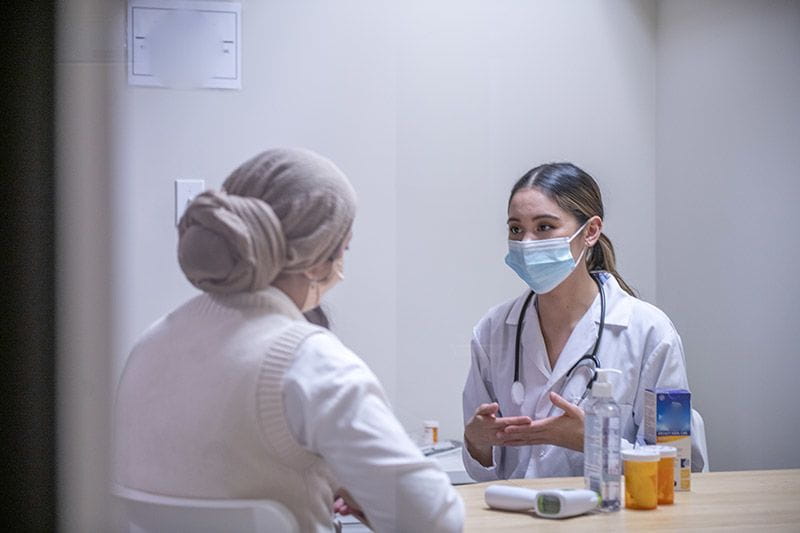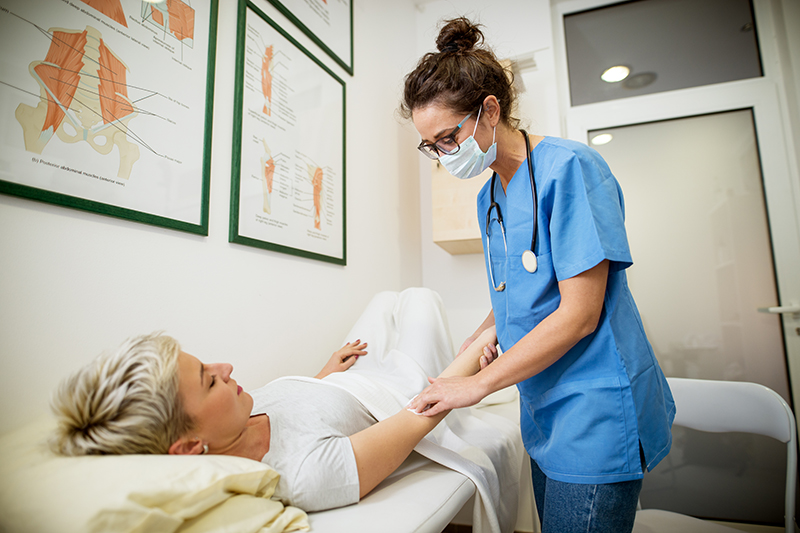Suppose you work in a hospital in a non-clinical role but you want to become a nurse.
Is it possible?
Valerie Jaquith says yes. It is. And many organizations will help pay tuition.
“Healthcare organizations are actually thrilled when people want to do this,” says Valerie, an EdAssist™ by Bright Horizons academic coach who helps healthcare employees use their education benefits to advance careers. “It’s a way to address shortages while also helping employees build careers.”
Still, for employees, such a big transition is intense and needs to be strategic. Thinking about making your move to bedside? We talked to Valerie about what you need to know.
Q: OK, let’s start from the beginning. I’m working an administrative desk job and I want to be a nurse. What are my stepping stones? Where do I start?
A: Ultimately, you’re going to need your BSN (Bachelor of Science in Nursing). However, there are several paths you can take to get there. In many cases, we advise people not to start with the BSN, but rather to get your RN license through an Associate of Science in Nursing (ASN) degree first.
Q: But if BSN is my goal, why not start there?
A: It’s about the amount of time you’ll have to spend in person in class. Most BSN programs are full-time, in-person — the kind of program you would do if you were a full-time student maybe coming right out of high school. That’s going to be a challenge if you’re an employee who plans to continue working to be able to use your education benefits — as most people changing careers are planning to do.
Q: But isn’t an associate degree still in person?
A: Yes. But it’s a shorter program, and once you have your associate and your RN license, you can earn the rest — so go from RN to that important BSN — fully online. So rather than spending four years in a traditional BSN program, you can do two years in an associate degree, and then two years in an online RN to BSN. It can also be less expensive than a pre-licensure bachelor’s degree because you can do the ASN at a community college. When we explain all the options, most people say, “Show me the associate degree.”
Q: How long will it take to get my associate degree/RN license?
A: That depends. Some people do it in stages — they take a step back and do their LPN (licensed practical nurse) first. That’s a one-year training program. And then they do an LPN-to-RN bridge program. Those two programs together will take about two to three years, depending on whether or not you leave a space between. The associate degree generally takes two years in total — after the prerequisite courses you’ll need to apply.
Q: Wait — I have to take classes before I can even apply?
A: Yes. These are basic courses you’ll need to have taken before you can even apply to nursing school. It’s a lot of sciences — anatomy, physiology, microbiology, etc. Some are basic general college courses you might have already taken, such as English and math, so it pays to look at old transcripts. These classes can be done in a number of places. There are some great traditional universities that offer those courses online, as well as community colleges. We tell people to start assembling those prerequisites — whether from previous credits or taking new classes — as soon as you know you’re interested.
Q: Does it matter where I take them?
A: It could. Getting into community college programs is currently very competitive — so competitive that a lot of community college nursing programs have started point systems connected to applications. Some will give extra points if you do prerequisites with them. For that reason, we tell people to think about where you plan to apply and then to take prerequisites there. It’s one reminder of why it’s so important to think strategically out of the gate, and to be very familiar with each school and what they require before you do anything.
Q: What if I want to get started now. Are there any alternatives to community colleges?
A: There are private career schools. But those are extremely expensive. And while your education benefits may cover some of the cost of those schools, it will still cost you more than a community college — something that might be fully covered by your benefits. Another option: sometimes people will get a bachelor’s degree in something else, which makes them eligible for second-degree BSNs.
Some final notes: Valerie says there are hard realities to training to be a nurse — labs and clinical hours and other commitments that take up time even if your program is hybrid. “It’s tough to do a nursing program — especially as a second-career,” she says. “That’s why, when we talk to people about options, we don’t just talk about the closest school, but also school choices that provide the best fit — the ones that might have classes on evenings or weekends.”
The possibilities are great, she says, “It’s just important to be clear-eyed about what it will take to get there.”





